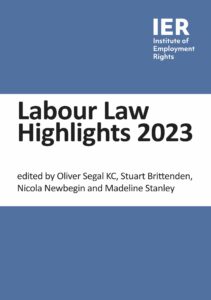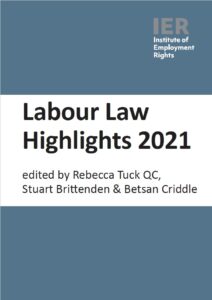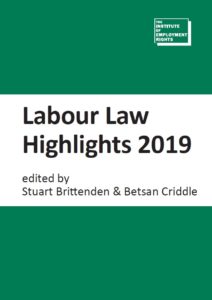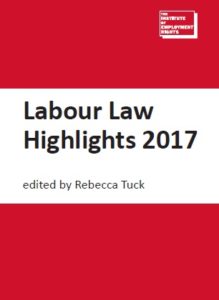Protection of Official Data – submission to the Law Commission
A response to the Law Commission's consultation on how to protect Official Data as it reviews statutes including the Official Secrets Act.
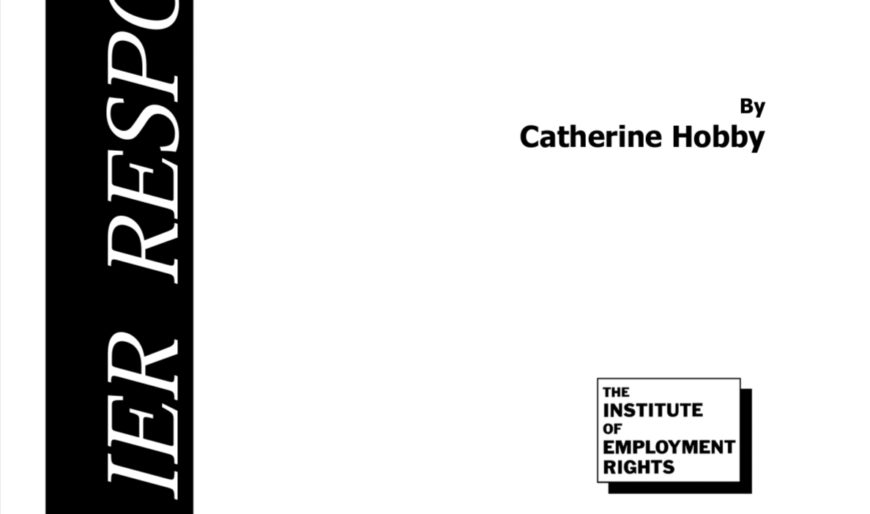
Catherine Hobby, Senior Lecturer in Law at University of East London, responds to the Law Commission’s consultation on how to protect Official Data as it reviews statutes including the Official Secrets Act, with particular emphasis on how any reform could affect the rights of whistleblowers at work.
She concludes as follows:
The Law Commission considers a fundamental aspect of this review is its open, public consultation that it believes “is crucial to ensuring public confidence in our provisional conclusions”. Despite this consultation the Consultation Paper does not inspire confidence with many of the provisional conclusions. As set out in this response, some conclusions, such as Provisional conclusion 14 regarding the exemption of legal advice, are welcome, but many proposals for reform are of concern, in particular provisional conclusions in respect of the Official Secrets 1989. In its examination of the 1989 Act, the Law Commission fails to consider the role of public interest disclosures in exposing iniquity on the part of government or review any material on whistleblowing.
Further, Chapter 6 of the Consultation report demonstrates a misunderstanding of the Human Rights Act 1998 and relevant human rights case law. An example is in paragraph 6.26 when the Law Commission comments: “This analysis will be crucial in ensuring that our options for reform are compatible with the European Convention on Human Rights.” This confusion results in an ill-founded Provisional conclusion that the right to freedom of expression does not mandate a public interest defence. It is argued that Law Commission has not achieved its aim to ensure the compatibly of is proposals for reform with relevant human rights by failing to recommend the restoration of a public interest defence.
The main failure of this Consultation Paper is that Chapter 7 fails to recommend the restoration of a public interest defence. As noted by the House of Commons Committee of Public Accounts in its 2016 report, the Cabinet Office has accepted “whistleblowers can help to identify systematic problems in organisations and across government”, but risk their career to raise important concerns. A whistleblower also faces prosecution under the Official Secrets Act 1989 and there is nothing in these proposals that will protect an individual who makes an unauthorised disclosure in the public interest. Effective whistleblowing policies should be in place to allow an individual to raise their concerns, but there should be a statutory public interest defence available to a whistleblower as a last resort.
The Law Commission undertook an extensive review of legislation in other jurisdictions. Although the relevant provisions are set out in Appendix A, there is little mention of them in the presentation of the provisional conclusions, except as justification to increase penalties for the disclosure of information in Chapter 3 or the dismissal of the Canadian model in Chapter 7. This failure to engage with comparative material is unfortunate as the material does provide some useful examples of good practice. For example, the Canadian Public Servants Act 2007, set out in the Appendix, provides protection for public sector employees making disclosures classed as wrongdoing in respect of the public sector. Wrongdoing includes misuse of public funds, gross mismanagement and an act or omission that creates a substantial danger to life, health or safety of persons or the environment. The Preamble states the conflict all whistleblowing involves:
“Public servants owe a duty of loyalty to their employer and enjoy the right to freedom of expression as guaranteed by the Canadian Charter of Rights and Freedoms and that this Act strives to achieve an appropriate balance between those two principles.”
It is unfortunate that the Law Commission has not undertaken the same approach in its review of how to protect official data. The intention of the Law Commission in its Consultation Paper was to consider whether existing legislation “effectively protects official information”, and not how to protect public interest whistleblowers, but its other aim was to assess whether the provisions strike “an appropriate balance between transparency and secrecy”. The Law Commission have proposed reform of the existing official secrecy legislation, but its recommendations place an emphasis on secrecy and deny transparency.
Downloads
- Protection-of-Official-Data.pdf - 828.78 KB
